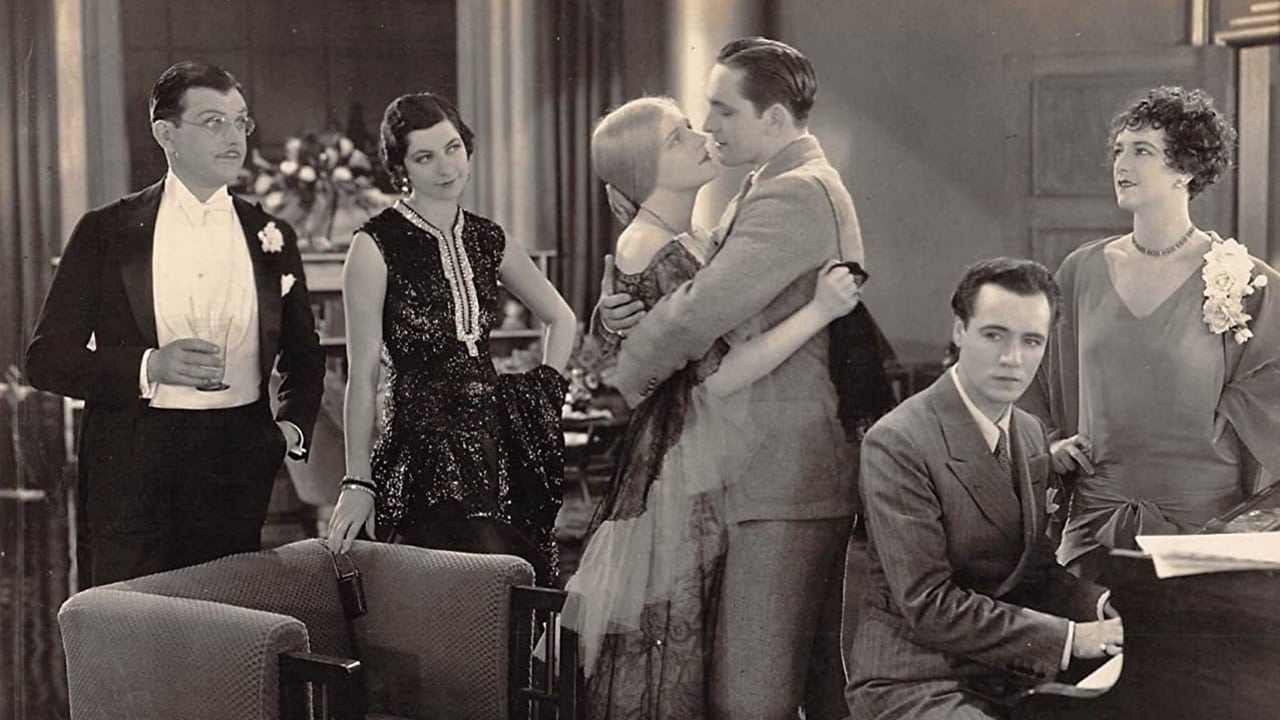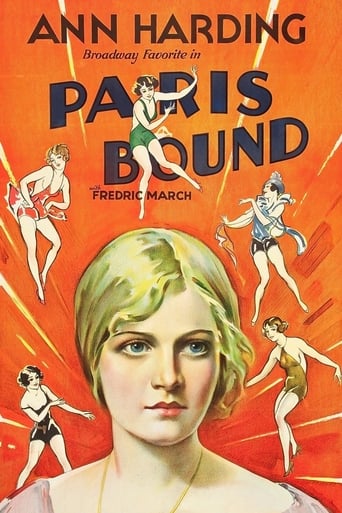

Really Surprised!
... View MoreAmazing worth wacthing. So good. Biased but well made with many good points.
... View MoreThe story, direction, characters, and writing/dialogue is akin to taking a tranquilizer shot to the neck, but everything else was so well done.
... View MoreLet me be very fair here, this is not the best movie in my opinion. But, this movie is fun, it has purpose and is very enjoyable to watch.
... View MoreThanks to the efforts of Gary Lacher who found and repaired a 16mm print, this is no longer a lost film. Alas, it's no lost masterpiece either. In fact, as we might expect from an early talkie, it's all talk, talk, talk and little, little action. But Ann Harding gives a competent performance and the other players, with one exception, are also up to scratch. The exception, oddly enough, is Fredric March, here making his eighth movie appearance, and his third sound film. His is a vital character, but March seems to be playing the role as if he were just discovering movies for the first time in his career. His performance is hesitant, to say the least. Admittedly, director Edward H. Griffith is of no help. He certainly gives Ann Harding the best camera angles, but March doesn't fight back. He seems both intimidated and so overawed that he's content to stay in the shadows, as it were. Just look at the posters reproduced on the Grapevine DVD. At first sight, the cover reproduction of the original 1929 poster does not feature March at all. Ann Harding takes up at least half the poster and her name is right up there in big, big letters. But with the aid of a magnifying glass, you can just make out the name of Fredric March, buried under the leg of some sexy chorus cutie!
... View More"Paris Bound" is clearly a Pre-code film with its strange moral sensibilities and it probably will shock most viewers today. However, I also found that the film's message was bizarre and confusing to say the least.When the film begins, Jim (Frederic March and Mary (Ann Harding in her first film) are getting married. On the day of the wedding, Mary has a strange talk with Jim--almost like she is suggesting an open marriage where each can sleep with whomever they like. Later, it seems more like she really, perhaps, intended to say they both could have their own lives and friends of the opposite sex...which is, practically speaking, an invitation to have an open marriage. Well, Jim is the nice and dutiful husband...for a few years. Unfortunately, Nora is a real 'modern girl' and offers to become his mistress.In the meantime, you see some weird interludes with Jim's parents. They are divorced and the father blames it all on his wife! He admits to having had affairs but that, to him, seems hardly a reason to end the marriage as these ladies meant nothing to him(??). So, SHE is painted as the unreasonable person. Later, this man advises Mary to take his attitude...and when Mary learns that Jim might have a mistress, she ponders sleeping with her best friend, a man she often hangs out with when Jim is off on business trips.Does all this sound odd and confusing? Well, wait until you see the ending...and then you'll most likely wonder what the film was all about and what messages it was trying to convey. I know that it's NOT a great film if you want to give newlyweds some healthy marital advice!So is it any good? Well, I think Harding sometime overacted. March was fine even if his character seemed detestable. Overall, however, the film came off as a bit stagy and unsatisfying. It's also the sort of amoral film that the studios would abandon once the new Production Code was put into effect in mid-1934.
... View MoreI watched the 1929 Paris Bound, based on a play be Philip Barry and starring Ann Harding in her film debut and Fredric March. They play a loving couple who claim their love will never be tainted by others. March's parents caused a scandal in their set when she divorced him after his affair. They argue at the wedding that the woman was foolish and cost them both their home because of her divorce actions.With that set up we see March and Harding through their first happy years of marriage. They are devoted but very modern. When business takes March to Paris, he goes alone. They believe a "break" is good for their marriage and she has her work with Richard (Leslie Fenton) on a ballet score. But into this bliss creeps the jealous Noel (Carmelita Geraghty) who has never gotten over losing March to Harding. She sees in the society news that March has gone to Europe alone and she chases after him.After Harding learns of this, she decides to have an affair with Fenton but March returns home. Will they break up? Will they be able to patch things up? Harding is just wonderful in her first film. She's quite natural and at ease. March is also very good. Together they avoid the stagy acting and over pronunciation that mars other early talkies. Fenton and Geraghty are also good. Ilka Chase takes honors among the supporting cast (also in her film debut). Co-stars include George Irving, Hallam Cooley, Charlotte Walker, Juliette Crosby, and Rose Tapley.
... View MoreDated, stagey and suffering from a static camera, this early Philip Barry play still manages to pack a wallop due to Barry's wonderful dialogue and the strengths of the leads, Frederick March and Ann Harding, right at the beginning of their careers, but possessed of a naturalness that carries this movie along. Thanks to the Vitaphone Project for reuniting the rediscovered soundtrack to the moving image.
... View More